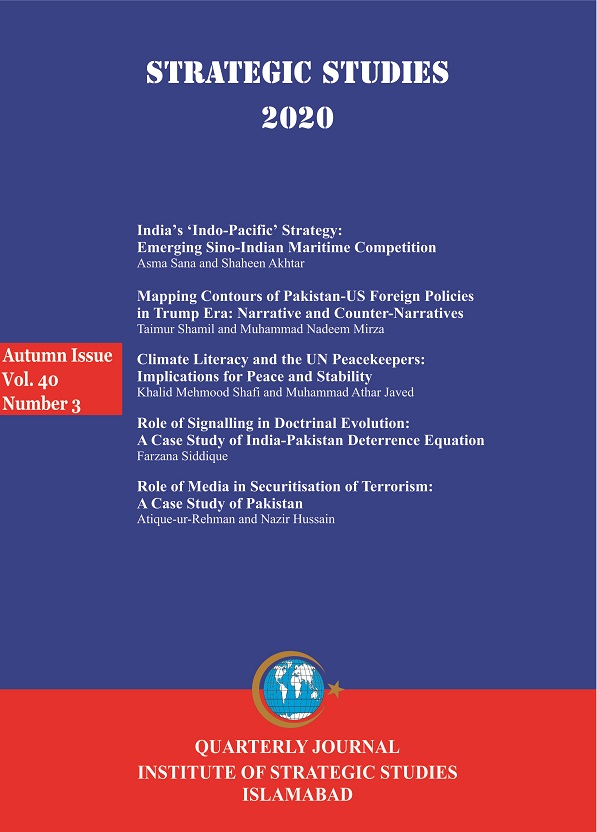Climate Literacy and UN Peacekeepers: Implications for Peace and Stability
Keywords:
Climate Change, National Security, Climate Literacy, UN Peacekeeping Mechanism, PolicymakingAbstract
This article examines the role of UN peacekeepers in creating awareness about the effects of climate change and establishes links with national security policy making process in host nations. A social survey was carried out to determine links between the United Nations Peace Keeping Operations (UNPKOs) and importance of climatic literacy. The data was gathered from 120 UN peacekeepers, 84 per cent of them supported constructive perspective of climatic literacy in maintaining peace and stability in conflict zones. Since the impact of climate change is a wide subject, the scope of this article, therefore, is limited to how the UN peacekeepers can help the host nations through climate literacy campaign.
This paper is a contribution to a global awareness campaign as well as source of empirical evidence to enhance capacity of UNPKOs and the host nations to help formulate a sustainable policymaking process to counter the threats of climate change. The article concludes that there is a need to consider climate change as a national and international security threat and, therefore, building capacity of UN peacekeepers through climate literacy program is important.

Published
How to Cite
Issue
Section
Copyright (c) 2022 Strategic Studies

This work is licensed under a Creative Commons Attribution-NonCommercial 4.0 International License.



